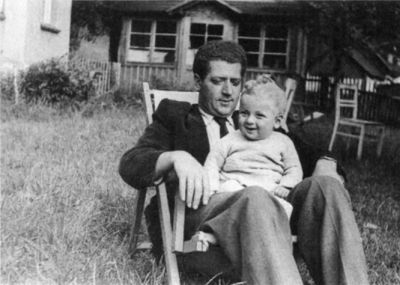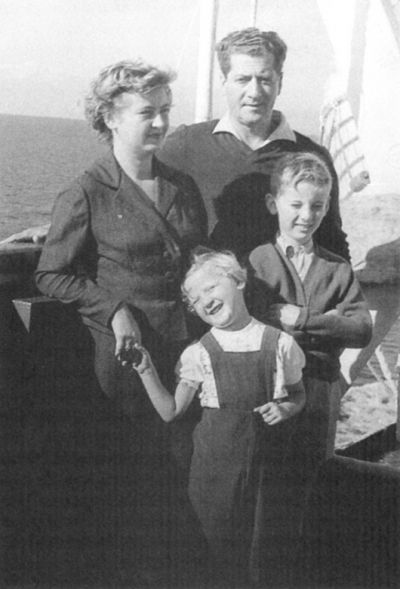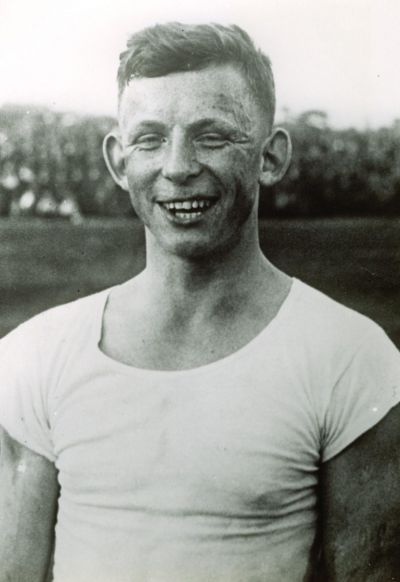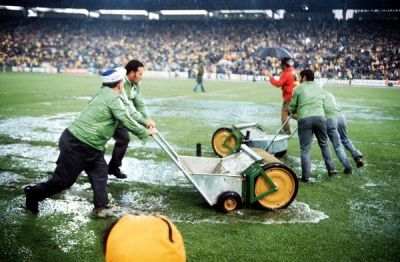Marcel Reif. From Wałbrzych in Poland to iconic football commentator

“I have wonderful memories of my time in Poland”, says Marcel Reif in a telephone interview in December 2021. His mother, a Silesian-Polish Catholic, and his father, a Polish Jew, gave him a happy childhood. For the most part, they lived in Warsaw at Wolność Street 2, which was in the Jewish Ghetto during the Second World War. He spent the summer months with his great grandmother and grandmother in rural Lower Silesia, not far from the town of his birth. His parents were not particularly religious, but they still celebrated all the Catholic and Jewish festivals. The “official language” at home was mainly a mixture of Polish with the German-Silesian dialect of his grandmother and the Yiddish of his grandfather.
During the National Socialist tyranny, a German industrialist named Berthold Beitz rescued Reif’s father from a train in Borysław (now Ukraine) that was bound for a concentration camp. Later, Marcel Reif was in touch with Beitz, who was declared Righteous among the Nations by the state of Israel in 1973 for rescuing Jews. Coincidentally, when Beitz died on Sylt in 2013, Reif was only a few hundred metres from his house on the island.
In the mid-1950s, when the political climate in Poland had deteriorated significantly for the Jewish population, the family decided to emigrate to Israel. “For me, that was like an adventure”, says Reif spontaneously, “like a world trip”. The Reifs took the train to Naples and then the boat to Israel before trying their luck in Jaffa. “For me, that was the first linguistic nightmare of my life, because I simply didn’t understand Hebrew in the Israeli junior school or French or Flemish in the boarding school run by Belgian monks to which I was then sent – awful”. Added to this were the strangeness of the environment and the unfamiliarity of the Hebrew language that was omnipresent in his everyday life. After a year and a half, Reif’s father got a job with the American armed forces in Kaiserslautern and the family moved to Germany.
Because of his lack of German, the eight-year-old Marcel was put in the first form with the six-year-olds. That was the second linguistic nightmare in his young life. Traumatised by this situation, he doggedly learnt German and quickly had success. He discovered in himself a gift for languages and a single-mindedness.
After completing his school-leaving exams in Heidelberg, to where the family later moved, he studied American Studies at the University of Mainz and developed a penchant for America and Great Britain. London would also soon become one of his favourite cities starting from when he worked there for two years as a political correspondent for Second German Television (ZDF). This first professional experience in the media brought him immediate success which was endorsed confirmed by experts and viewers alike. However, his failure to belong to one of the dominant political parties of the time made his chances of a future career in this field practically impossible. The fact that newcomers to the new homeland were unwilling to be taken in by political or social institutions, a self-fulfilling trait found again and again in the new migration environment, was also the case for Marcel Reif at this period of his career: He was, is and remains an unaffiliated independent.




